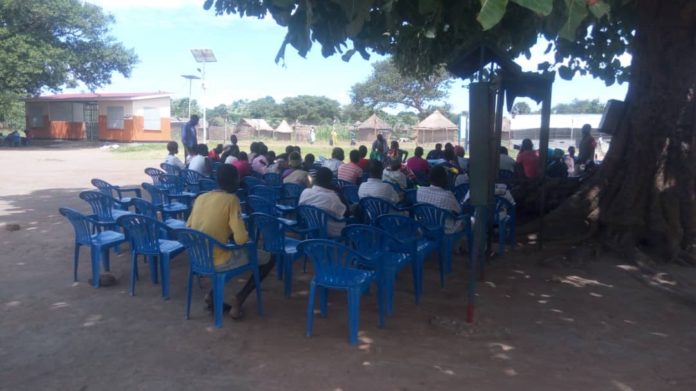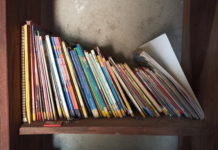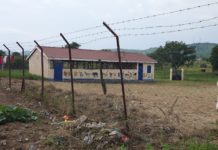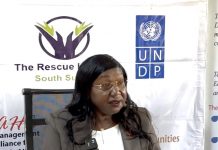
Author: Michael Ojok
The district’s health facilities surfer from shortages of medicines. Medics say they are handicapped by the scarcities. The condition of residents, both South Sudanese refugees and hosts, in the district, is worsened by the deep poverty levels. They lack money to meet basic needs, including food, clothing and shelter. They cannot pay for treatments, too, in privately owned clinics.
The District Health Officer of Adjumani, Dr. George Bhoka, is concerned about the sharp shortages. He blames the National Medical Stores; a governmental body charged with distributing drugs, for delivering few in his district. He wants the authorities to increase the amount they allocate to his location.
He compares the current district budget allocation at 1,500 Uganda Shillings, which is equivalent to around 40 cents USD, towards health per person per year.
“Adjumani (main) hospital only has suffered a budget shortfall of 360 million Uganda Shillings (slightly over $ 98.000 .00 USD). This excludes other health facilities in the district,” he said. “The supply is inadequate, lasting only two weeks instead of two months.”
The officer says the health amenities in his area are deprived. He attributes the dire condition to the vast population, which rose significantly recently.
Hundreds of thousands of South Sudanese people, escaping deadly South Sudan’s clashes, sought protection in the region. This rapid growth of the population deepened the problems of ailing health department; he adds.
Remarkably, the refugees get support towards their health from humanitarian agencies. The Local Chairperson V of Adjumani district, James Leku, confirms receipt of funds towards this cause.
“The district received 60 Million (Uganda Shillings, which is slightly below $20.000 .00 USD) from the United Nations High Commission for Refugees. The funds are meant to buy supplementary drugs to support both refugees and hosts,” he said.
The funds, however, are a drop in a bucket. Both refugees and hosts, who trek long distances to the nearest health centers seeking treatment, usually do not access drugs they need. Public Health Centers, in the region, have run dry.
In most cases the health practitioners at the facilities advise the patients to buy medicines in privately owned drug shops. Unfortunately, most of them cannot afford it.
The World Bank Assessment of Uganda Poverty levels of 2016, indicates even though Uganda has reduced monetary poverty at a very rapid rate, the concentration of poverty is still higher in the region compared to other parts of the country.
The assessment shows “the proportion of the total number of poor people who live in the Northern and Eastern regions (of the country) increased between 2006 and 2013, from 68 to 84 per cent.”
The Chairperson of the Refugee Welfare Committee for Boroli 1 Refugee settlement camp, Isaac Okeny, echoes the words of James. He says he is worried.
“Refugees are frequently disappointed when they trek for more than two kilometers to Pakele Health Center (the nearest health facility) to access medical services, and are told there is no drugs,” he claims. Isaac is a refugee, himself.
It is not known when the shortage will be addressed or if there is any arrangements in the pipeline, at all.




